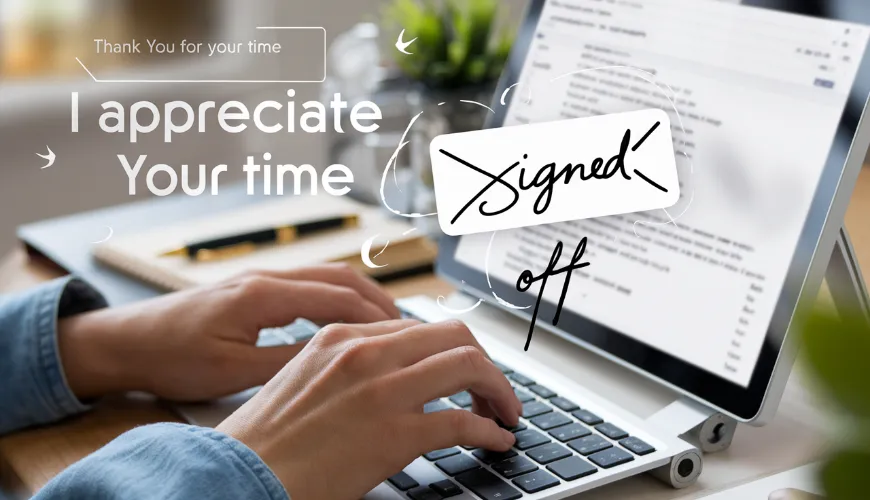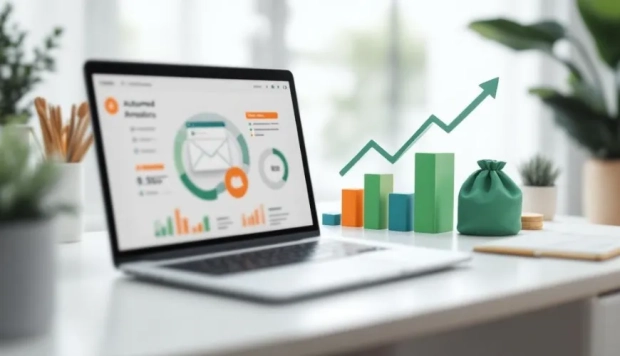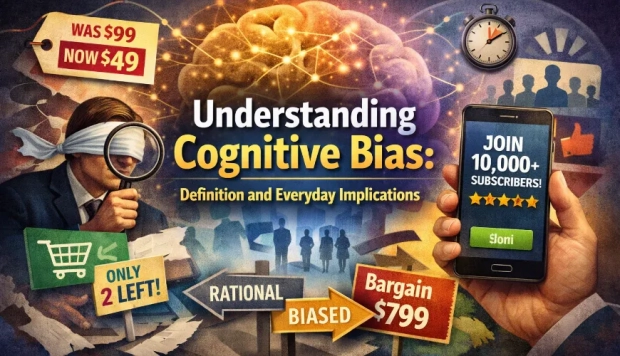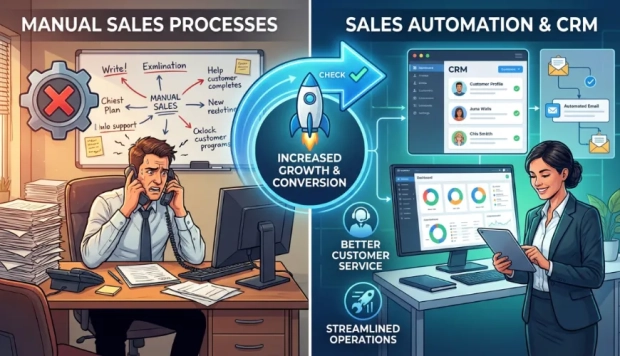Better Ways to Say Thanks in Advance

How we sign off can actually say more than we realize - it's a small touch that can leave a lasting impression. One phrase that frequently pops up in professional correspondence is "Thanks in advance”-a seemingly polite way to express gratitude for something that hasn't happened yet. But if you've ever paused before typing those words, wondering if there's a better way to phrase it, you're not alone. Increasingly, professionals are reconsidering how they express appreciation, especially in written communication.
Why "Thanks in Advance" Might Not Be Ideal
On the surface, "Thanks in advance” appears courteous and efficient. It communicates appreciation while implying that the recipient will follow through on a request. However, this common phrase can sometimes backfire.
The phrase can come across as presumptive or even passive-aggressive, especially in sensitive situations. After all, you're thanking someone before they've agreed to help or had the chance to respond. Some people interpret this not as gratitude, but as pressure-like saying, "I'm assuming you'll do this whether you want to or not."
Gretchen McCulloch, a linguist and author of Because Internet, explains that tone in written communication is often difficult to interpret. "It's easy for a short phrase to read more like a command than a request,” she notes. And in high-stakes business settings, maintaining clarity and goodwill can be just as important as getting the job done.
So, what are your options? How can you express appreciation in a way that feels warm, respectful, and genuinely thankful-without assuming too much?
Alternatives to "Thanks in Advance" That Actually Work
Choosing an alternative to "Thanks in advance” depends on the tone you want to strike, your relationship with the recipient, and the context of your message. Fortunately, there are plenty of professional, clear, and kind ways to express gratitude without sounding overly formal or inadvertently demanding.
Here are some effective alternatives that cover a range of tones, from casual to formal:
1. Thank you for your time and consideration
Especially useful when you're making a request that involves effort or decision-making-like a job application or proposal. This phrase shows that you recognize the other person's input as valuable. It also implies respect for their time, which can go a long way.
Example: "Looking forward to your feedback. Thank you for your time and consideration."
2. I appreciate your help with this
This phrase communicates gratitude without presuming the outcome. It's direct and sincere, making it suitable for most workplace scenarios. It also conveys real-time recognition of the effort being made, rather than future compliance.
Example:
"Could you please provide the updated figures by Thursday? I appreciate your help with this."
3. Let me know if you need anything else from me
Sometimes, the best way to thank someone is by expressing a willingness to support them. Offering help or resources in turn shows collaboration and empathy, and it encourages a mutual spirit of assistance.
Example:
"I've attached the latest numbers for the sales report. Let me know if you need anything else from me."
4. Thanks again for your support
This is a friendly, low-pressure phrase that assumes the person has already been helpful. It works well in situations where there's an ongoing relationship or project, and it reinforces existing goodwill.
Example:
"Everything is on track for the product launch. Thanks again for your support."
5. Looking forward to hearing from you
Though it doesn't include the word "thanks,” this phrase is often used in closing to signal polite anticipation. It encourages a response without sounding pushy or presumptuous. It's ideal when you want to keep things open-ended.
Example:
"If the timeline changes, please keep me in the loop. Looking forward to hearing from you."
6. I'm grateful for your input
A more formal and emotionally resonant option, this phrase is perfect when you're asking for feedback or guidance. It emphasizes that what the person has to offer is not just helpful, but meaningful to you.
Example:
"Would love your perspective on the messaging in this campaign. I'm grateful for your input."
7. Any help you can offer would be greatly appreciated
This softer approach expresses a genuine request for help while clearly stating your appreciation. It tends to work well when asking for favors or assistance from someone you don't know well.
Example:
"I'm trying to finalize the logistics for next week's event. Any help you can offer would be greatly appreciated."
Finding the Right Balance in Your Message
As with any form of communication, context is everything. While it's tempting to rely on familiar phrases, tailoring your message to your audience is key. A quick message to a colleague might call for a casual tone, while an email to a senior executive or external client might warrant something more polished.
So how do you strike the right balance? Consider the following:
Before you hit send, think about who you're talking to-is it a colleague you work with regularly, a supervisor, or someone you've never interacted with before? Your approach should match the relationship.
Always match your tone to the situation-whether you're asking for a quick favor, making a formal request, or just following up, the way you say it should fit the moment.
Be authentic in how you communicate-sounding too stiff can come off as robotic, but going too casual might make you seem unprofessional. Striking that sweet spot keeps your message both relatable and respectable.
Think of gratitude as a bridge, not some kind of trade-off. When you say thank you, let it come from a place of genuine appreciation-not as a way to get something in return. It's about showing respect, not making a deal.
The Psychology of Gratitude in Emails
Interestingly, how we express gratitude doesn't just impact how others perceive us-it can also affect how they respond. A study published in Psychological Science found that people are more likely to help someone again after receiving a genuine thank-you. In professional settings, expressing appreciation can increase cooperation, trust, and reciprocity.
But there's a catch: gratitude only works when it feels sincere. Empty or formulaic expressions of thanks-like "Thanks in advance” used without context-can come across as insincere or manipulative.
Instead, taking the time to tailor your closing words can make your message feel more human. And in today's digital world, humanity goes a long way.
A Real-World Example: The Job Application Email
Consider this scenario: you're applying for a marketing role at a fast-growing startup. You've tailored your resume, written a thoughtful cover letter, and are now sending a follow-up email to the hiring manager.
It might be tempting to end the message with "Thanks in advance,” but that could inadvertently appear too assertive or dismissive of their time constraints.
A stronger closing might be:
"Please let me know if there's any additional information I can provide. Thank you for your time and consideration-I truly appreciate the opportunity to connect.”
This version conveys professionalism, gratitude, and openness, all without assuming a response. It leaves a better impression and sets the tone for future interaction.
What to Avoid and Why It Matters
While "Thanks in advance” isn't inherently rude, it walks a fine line. In situations where tone is critical-such as negotiating deadlines, requesting sensitive information, or reaching out to someone for the first time-it's best avoided.
Other phrases to steer clear of include:
- "Thanks anyway” – This can sound defeatist or dismissive if the person hasn't refused your request.
- "I trust you'll handle this” – Comes off as authoritarian, not appreciative.
- "Much obliged” – Outdated and overly formal for most modern business contexts.
Ultimately, your closing words should leave your reader feeling respected, acknowledged, and motivated to engage-not cornered or obligated.
Elevating Everyday Communication
Language evolves, and so should our expressions of appreciation. Whether you're managing client relationships, collaborating with colleagues, or simply following up on that long-overdue report, the words you choose can shape how people respond to you.
The next time you're tempted to default to "Thanks in advance,” pause and consider your message's tone, the context, and the relationship. A small change in phrasing can lead to stronger connections, better responses, and more effective collaboration.
In the end, gratitude is more than just a sign-off-it's a mindset. And in professional communication, that mindset can make all the difference.



